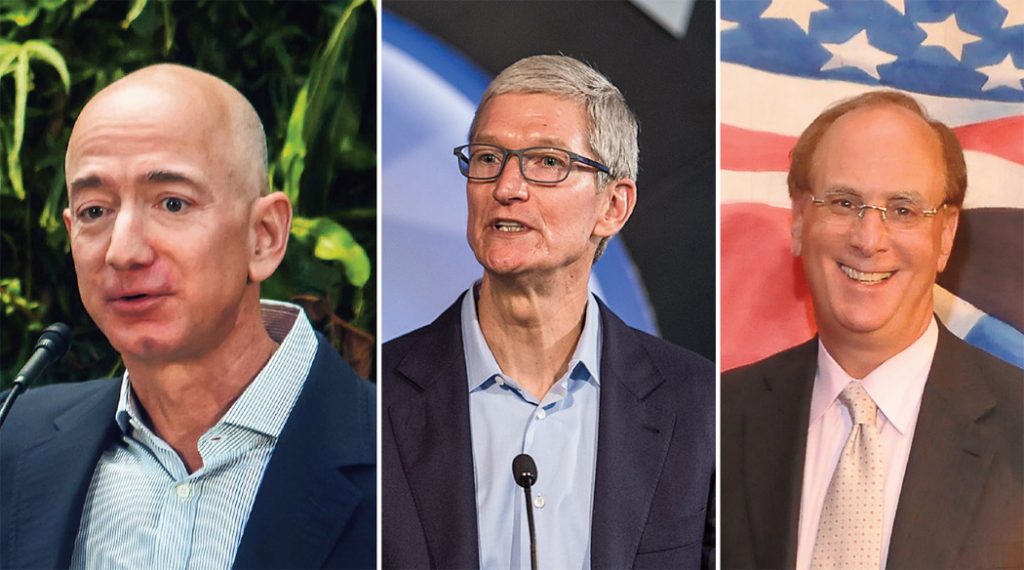
The idea of “business as usual” is at a crossroads. We citizens can no longer afford to allow unbridled profit to undermine the health of the environment. Around the world, corporations are sobering up to the realization that major reform must address the mounting climate crisis. On top of that, staggering inequality among industrialized nations threatens to deteriorate the social and economic stability of our world. We need to redesign our financial system to address not only our economic needs, but also provide for our social and environmental necessities. One such system that has gained traction is stakeholder capitalism.
The Origin of Profits Above All
In his 1970 landmark article, Nobel prize-winning economist Milton Friedman famously declared that the only social responsibility of a corporation was to increase shareholder value. Businesses obliged by narrowly interpreting “shareholder value” as financial profit. Friedman noted that a corporation bears no social responsibility for the community it operates within or for environmental stewardship in general beyond what is legally required. In line with the Friedman doctrine, business proceeded to lobby aggressively to erode consumer protections and environmental stewardship laws in their quest to enhance the financial bottom line.
A Healthy New Model
In stark contrast to Friedman’s doctrine, stakeholder capitalism is a model that recognizes a company’s responsibility to the stakeholder community it impacts—beyond that of shareholders exclusively. This includes those who are affected by business operations, such as employees, suppliers, communities, the environment, and the company’s shareholders.
Stakeholder activism has made large strides in recent years. In 2019, CEOs from 181 leading American companies composed a list of stakeholder responsibilities that they unanimously pledged to uphold. Known as the Business Roundtable, this new stakeholder doctrine pledges to implement business practices that build “a better future for the nation and its people.” In this pledge, members committed to deliver value to their customers, invest in their employees, deal fairly and ethically with their suppliers, support the communities in which they work, and generate long-term value for shareholders. Jeff Bezos, Tim Cook, and Larry Fink (of BlackRock, the largest financial asset manager in the world), signed the doctrine along with 178 other prominent business figures.
How IBM Does It
One example of stakeholder capitalism can be found within IBM, whose chief executives are among those who signed the pledge. In December, IBM launched a new partnership with the Alliance to End Plastic Waste, which is helping them adopt a Plastics Recovery Insight and Steering Model (PRISM) so they can follow the course of the waste they produce. This data will all be stored in IBM’s cloud, which, along with their other AI and blockchain technologies, will help them further their environmental responsibility as a corporation.
This will be added on top of IBM’s already extensive effort to minimize their environmental footprint. To IBM’s credit, their 2019 annual environmental report showed that 95 percent (by weight) of their waste materials were reused, resold, or recycled.
Becoming the Solution
Yes, businesses can be a powerful force for good if they commit to a stakeholder model. Such a model provides a framework for businesses to work with the communities they serve and value the environment in which they operate.
In John Ikerd’s book Sustainable Capitalism: A Matter of Common Sense, he eloquently highlights how this model represents a shift away from predatory capitalism toward a regenerative approach. Ikerd explains how economics must encompass environmental, social, and financial standards to optimize the conditions in which everyone can thrive.
Some would say this is too idealistic. Perhaps. But look at the imbalances that “business as usual” has created over the last 50 years. Not a pretty legacy to hand off to our children. A new, more expanded design of stakeholder capitalism—guided by a higher standard of values and ethics that delivers a more inclusive financial system—holds tremendous promise to benefit all. This transformation does not occur in a vacuum—all are invited to be part of the change underway.
If you would like to partner with TerraCycle Fairfield, email TerraCycleTown@gmail.com.
